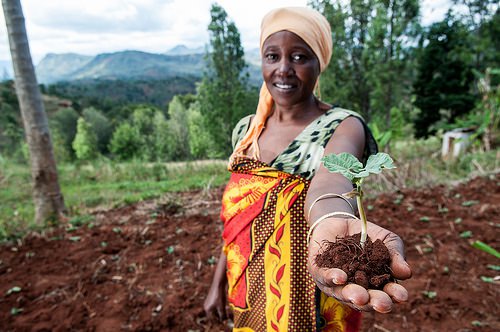|
According to the UNDP challenges, non-infrastructural regions are still depending on rain-fed agriculture. Rain-fed agriculture can only be performed in a hot humid coastal plain. This method can be useful if there are consistent rainfalls but there are days and even weeks that go by without a drop of rain. The IFAD organization proposed that there needs to be some education among rural farmers.
IFAD is targeting groups of people that have potential to enhance their agricultural knowledge. The main purpose of this agricultural education is to teach rural farmers to have a better understanding on technologies, boost up their crop productivity, and agricultural produce to help to increase the GDP for the country of Tanzania. Other than rural area support, IFAD proposed that there needs to change in agricultural sectors and reform agricultural strategies.
|
| | | | | | | | | |
|
 |
Mellow. BfVN8k3CUAAdEwS-300x300. Digital image. Mellowsman Foundation Africe-Tanzania. Mellow, 17 June 2014. Web. 23 Nov. 2015.
Ighobor, Kingsley. Africa's Youth: A "ticking Time Bomb" or an Opportunity? Digital image. Africe Renewal. Kingsley Ighobor, May 2013. Web. 23 Nov. 2015.
Utah, Amarachi. Sharifa Juma Digs Terraces to Stop Soil Erosion in Lushoto, Tanzania. Digital image. Seed Africa. Amarachi Utah, 15 Jan. 2015. Web. 23 Nov. 2015.